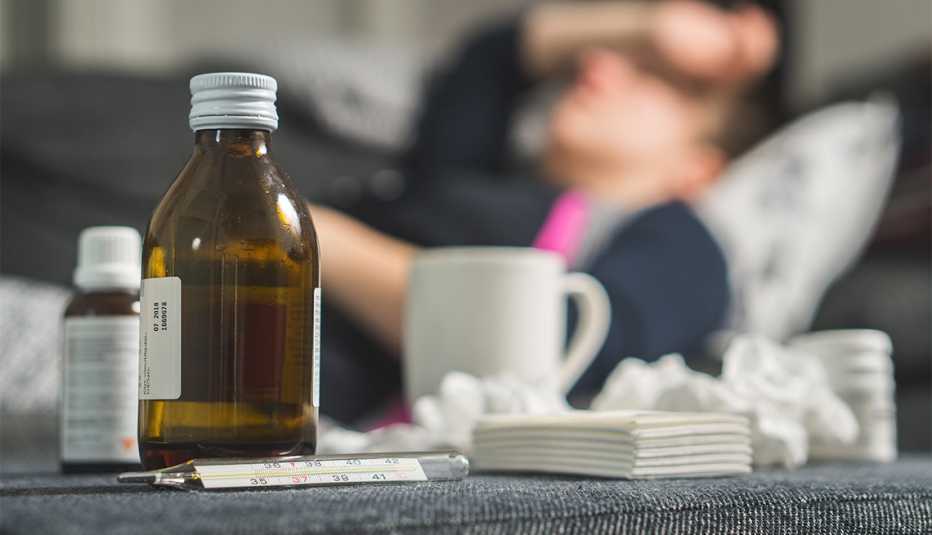AARP Hearing Center


Headed to the pharmacy for something to relieve your aching, sneezing, stuffed-up symptoms? If you’re among the 70 percent of adults 65 and older with high blood pressure, also called hypertension, you may want to think twice before grabbing one of the many over-the-counter options.
That’s because decongestants, a common ingredient in cold and flu medications, can raise your blood pressure, according to the latest guidelines published in 2017 by the American Heart Association and the American College of Cardiology.
“It’s kind of a general thing that [decongestants] are not a good idea for people with high blood pressure,” says Sandra J. Taler, M.D., a professor of medicine and physician in the division of nephrology and hypertension at the Mayo Clinic in Rochester, Minnesota. “And probably a lot of people don’t know that.”
Similarly, some pain relievers that people take to treat a cold or the flu come with risks for people with high blood pressure.
How do decongestants raise blood pressure?
Decongestants stimulate the muscles in the artery walls, causing them to constrict or narrow, explains Matthew F. Muldoon, M.D., the founding director of the Hypertension Center at the UPMC Heart and Vascular Institute and a professor of medicine at the University of Pittsburgh School of Medicine.
This constriction of blood vessels in the nose relieves swelling in the nose and keeps fluid from getting into the sinuses, which is helpful if you are congested. But it also “causes the pressure inside the arteries [throughout your body] to increase a little bit,” Muldoon says.
The effect that decongestants have on blood pressure is especially a concern for people who have heart disease and whose high blood pressure is not well controlled, Muldoon says.
If you have high blood pressure or heart disease, “the last thing you need is constricting blood vessels,” Erin Michos, M.D., associate director of preventive cardiology at the Johns Hopkins Ciccarone Center for the Prevention of Cardiovascular Disease in Baltimore, said in a statement with the American Heart Association. “It can exacerbate or worsen the condition.”
Cold and flu medications to avoid if you have high blood pressure
It’s not always obvious what pills and liquids on the drugstore shelves contain decongestants. There are a handful of decongestant-only products, but most often decongestants are included in combination products that target a range of symptoms, congestion being just one of them.
Multisymptom products that contain decongestants include Tylenol Cold and Flu, Advil Multi-Symptom Cold and Flu, Benadryl Allergy Plus Congestion, Mucinex Sinus Max — and the list goes on.
How can you tell if a decongestant is in your cold and flu medicine? Taler says to look at the ingredient list for pseudoephedrine or phenylephrine.






































































More on Drugs & Supplements
Drugs Linked to Depression
More than 200 common medications could cause changes in mood
Can Supplements Help Lower Blood Sugar?
Although there is some interesting research, the science isn’t clear
AARP Smart Guide to Seasonal Allergies
Achoo! How to understand and treat your symptoms